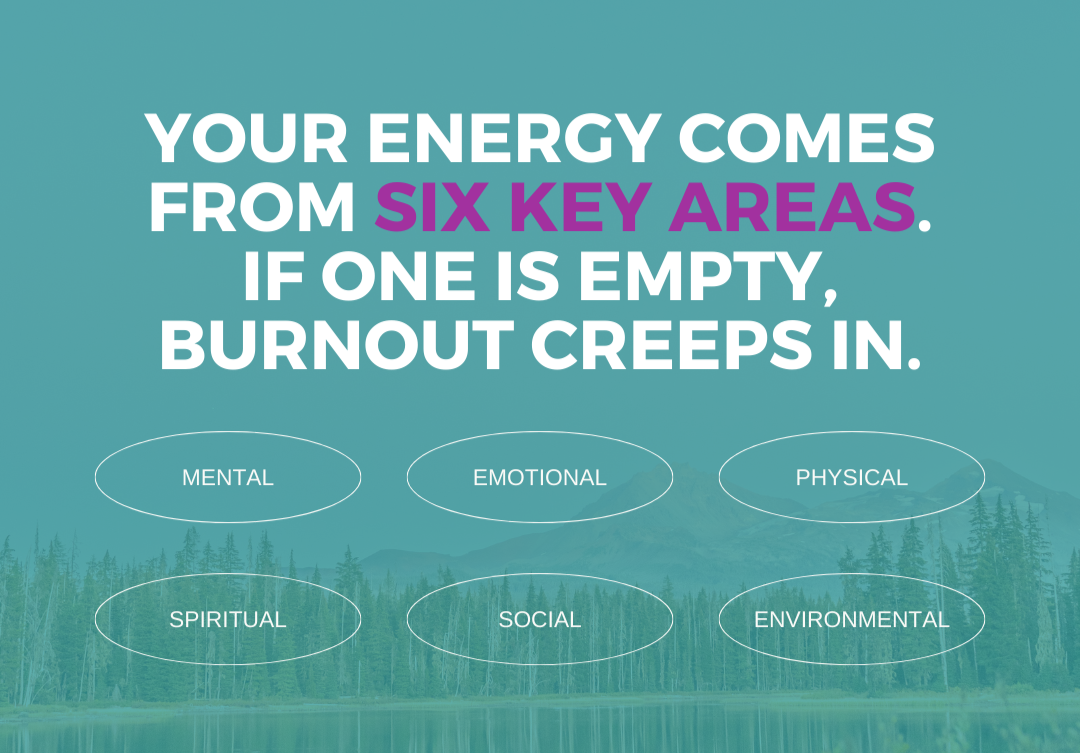The Mindful Leader's Guide to Overcoming Procrastination
Procrastination. It’s a word that evokes a visceral sense of dread and frustration. We've all been there: staring at a looming deadline, only to find ourselves reorganizing our email inbox or doom scrolling through social media. For a leader, however, this issue is tenfold. When a leader procrastinates, it sends a ripple effect through the team, slowing progress, dampening morale, and eroding trust.
As a leadership coach, my work with clients goes beyond offering simple time management tips. I’ve found that procrastination is rarely about laziness. Instead, it’s a symptom of deeper, often hidden, issues. It's a signal from your brain that something is out of sync. This is where the principles of mindful leadership come into play. By learning to Pause, Notice, and Address the root cause of our procrastination, we can transform a crippling habit into a powerful tool for self-awareness and growth.
I recently read a fascinating Inc. article by Jessica Stillman, "Don't Wait: Use This Neuroscientist's Principles to Stop Procrastinating." The article rightly points out that procrastination is often a response to tasks we perceive as unpleasant or difficult. While it offers excellent, research-backed advice, my work with leaders translates these insights into a more holistic, human-centered framework. We don't just tackle the task; we tackle the underlying energy deficits that are holding us back.
To help my clients dig deeper into self-awareness, I typically use the Energy Leadership framework, which allows clients to explore which of the six buckets of core energy (physical, emotional, mental, spiritual, social, and environmental) are draining them. As I was reading Stillman’s article, I found myself nodding along and mapping my six buckets to the three buckets she identified: Head, Heart, and Hands.
So if you’re wondering, “How do I stop procrastinating?” Keep reading! The rest of this article combines Stillman’s approach with mine and is designed to help you pause, notice, and address what may be at the root of your procrastination. Happy Reading!
Pause, Notice, and Address
Unfortunately, the answer to “How do I stop procrastinating?” is not a one-size-fits-all solution. In order to stop, you must first pause and ask yourself, “Why do I procrastinate?”
Instead of judging yourself, simply notice what’s going on inside your body, and what your energy is trying to communicate with you. Using the six buckets of energy, or Stillman’s Head, Heart, Hands framework, ask yourself a series of diagnostic questions to pinpoint the true source of your resistance. Once identified, you can then systematically address the block and get on with your work.
The Head: Is It a Mental Block?
Sometimes, procrastination is a symptom of a mental energy deficit. Your brain is telling you that it lacks the clarity or bandwidth to proceed. This is an issue of the Head. When you’re in this state, the task feels foggy, overwhelming, or simply out of reach.
Lack of Clarity: Is the task ill-defined? Do you have all the necessary information? Your brain hates ambiguity. If you don't have a clear picture of what "done" looks like, your mind will resist starting because it can't plot a clear path to success. This ties directly to the mental bucket of energy. Without a clear mental map, your energy feels scattered. For example, if your boss asks you to "make a presentation for the board," but doesn't specify the length, the key topics, or the desired outcome, your brain will struggle to begin. The task feels like an infinite loop.
A Values Mismatch: Another Head-related issue is when a task clashes with your core values or purpose. This drains your spiritual energy bucket. For instance, if you're asked to write a report that you know contains information you don't fully believe in, or to lay off a team you’ve worked to build, your subconscious will put up a fight. You're procrastinating because you're feeling a deep sense of resentment or moral conflict. The energy you would normally use to get the job done is instead being used to internally wrestle with the task.
How to Address It: The solution here is simple but powerful: seek clarity. Ask the right questions. What’s the objective? What does a successful outcome look like? What information am I missing? If it's a values mismatch, you need to have a deeper conversation with yourself and your stakeholders. Is this a task you can ethically complete? Can you delegate it? Or do you need to find a way to align the task with a higher purpose you can believe in?
The Heart: Is It an Emotional Block?
This form of procrastination is a Heart issue, rooted in an emotional energy deficit. Your brain is anticipating a negative experience, and it's trying to protect you. This is what the Inc. article refers to as the brain avoiding unpleasantness.
Anticipated Unpleasantness: The task might be tied to a past failure or simply be inherently boring or tedious. Your brain's emotional center, the amygdala, is signaling a threat, and your instinct is to retreat. This can drain your emotional energy bucket, leaving you feeling depleted before you even begin. For a leader, this might be a difficult conversation with a team member, a challenging budget review, or a feedback session where you expect conflict. Your mind tells you, "This is going to be stressful," and you avoid it at all costs.
Fear of Judgment: This is a particularly common issue for leaders. You might expect the task to be stressful because you’re afraid of the outcome or how your work will be judged by others. This can be a significant drain on your social energy bucket, which is tied to your sense of belonging and standing within your team or organization. This fear of negative feedback can be paralyzing.
How to Address It: You can't just wish away a feeling. Instead, you need to change your emotional relationship with the task. Try reframing it. Can you turn a "boring report" into a "chance to prove our team's value"? Can a "difficult conversation" be a "courageous opportunity to help a team member grow"? You also need to schedule these tasks strategically. Tackle them when your physical and mental buckets are full. Don’t try to have a difficult conversation at 4:30 PM on a Friday when your energy is already low. Schedule it for a Tuesday morning when you’re fresh and ready to engage.
The Hands: Do I Fear a Lack of Tools?
This final form of procrastination is a Hands issue. You're not avoiding the task because you expect it to be unpleasant; you're avoiding it because you fear you lack the tools, skills, or resources to get it done well. This is a mental and environmental energy deficit.
Perceived Inadequacy: You might be thinking, "I don't have what it takes to succeed at this." This can manifest as a lack of confidence, which is a symptom of a deeper, logistical problem. Perhaps you don’t know how to use the new software, you haven’t been trained on the new system, or you simply don’t have the time or team members to get the job done. The feeling of being ill-equipped is a drain on your energy.
Environmental Obstacles: The problem might not be with you, but with your environment. Do you have a quiet place to work? Is your office a constant stream of interruptions? Are the tools you need broken or outdated? This environmental energy bucket is often overlooked, but a disorganized or distracting workspace can be a massive barrier to action.
How to Address It: The solution is to replace fear with a plan. Take a moment to inventory what you actually need. What tool, skill, or resource is missing? Once you identify it, you can develop a strategy to acquire it. Do you need to ask a teammate for a quick tutorial? Do you need to request a training session? Do you need to block off your calendar to create a distraction-free hour? By identifying the tangible obstacle, you empower yourself to move from inaction to a solution-oriented mindset.
Putting it All Together: The Mindful Leader's Approach
The Head, Heart, and Hands framework provides a simple and powerful way to diagnose the cause of your procrastination. When you pair that with the six energy buckets, you develop the self-awareness to understand your own energy and the resilience to lead effectively, even when things are difficult.
When you pause, notice, and address the reasons behind your procrastination, not only are you able to complete a task, but you’re also building your capacity to lead. You're learning to listen to the subtle signals your mind and body are sending you. By identifying the specific energy bucket that is drained—be it mental, emotional, or environmental—you can take targeted action to refill it. This is what separates a good leader from a great one: the ability to manage not just the work, but the people doing the work, starting with yourself.
So, the next time you feel the urge to procrastinate, don't just push through it. Take a moment to reflect. Is this a problem of the Head, the Heart, or the Hands? The answer will not only get you back on track, but will also make you a stronger, more mindful leader.
If you want to dive deeper into the root cause of why you’re procrastinating, let’s connect. Whether through one-on-one coaching or team workshops, I help leaders simplify how they manage their time, stress, and energy so they can have a greater impact on their teams and organizations. If you’d like to learn more about the six energy buckets, check out my other article, Life is stressful. Here's what you can do about it.
Book a FREE exploration call with me to discover how coaching can support you in your quest to become a more productive, effective, and mindful leader.



